|
An issue for reflection
WHAT DOES PHILOSOPHIZING DO TO US?
|
|

|
|
The winner of this month's competition is:
There are no necessary tools for understanding the philosophical life. The important tools are you and your own life.
by Sergey Borisov from Russia
Caption Competition
The above photo needs a caption (a text). Send us your suggestion! A caption can be a title, or the words of a person in the picture, etc.
Maximum length: 20 words.
Send to: Ran, Carmen, or This email address is being protected from spambots. You need JavaScript enabled to view it.
Deadline: The third Saturday of the month.
The Agora team will select the most philosophical, and/or smartest, and/or funniest caption. The winning caption will be placed under the photo, together with the winner's name.
|
|
- What can philosophy do for me?
- Maybe a better question is: What can philosophy do TO you?
- Do TO me? You mean that philosophy can change me? But philosophy is just words, a bunch of ideas!
- I am not talking about READING philosophy, but about DOING philosophy – about philosophizing. What can philosophizing do to you?
- Well, I have studied philosophy for many years, but I don’t think that it has changed me.
- Maybe it all depends on HOW you do philosophy. On how deeply you let it touch you. And which part of you is touched.
- Which part? My rational thoughts, of course.
- Is that all?
|
| |
|
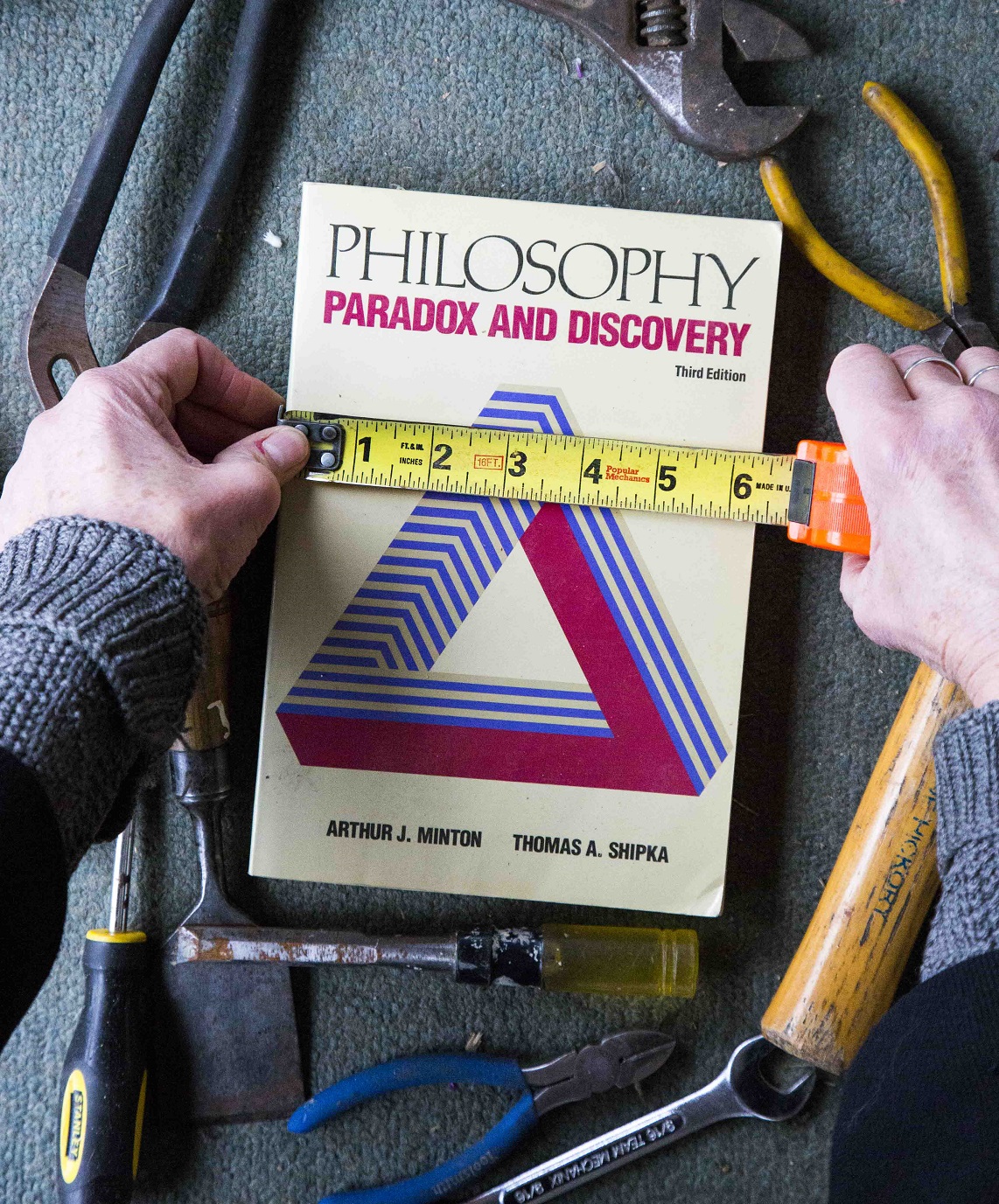
|
December Week 1 quotation
KARL JASPERS
|
|
The philosophical life
Karl Jaspers (1883-1969) was a philosopher and psychiatrist, and one of the founders of existentialist philosophy and psychology. After receiving his medical degree he began working at a psychiatric hospital in Heidelberg, but he was disillusioned with the existing approach and decided to work on improving it. At the age of 30 he joined the philosophy department, and soon afterwards turned from psychology to philosophy. Because of his Jewish wife he was forced by the Nazis to retire, and was also banned from publication. Fortunately, they both survived. After the war he moved with his wife to Switzerland.
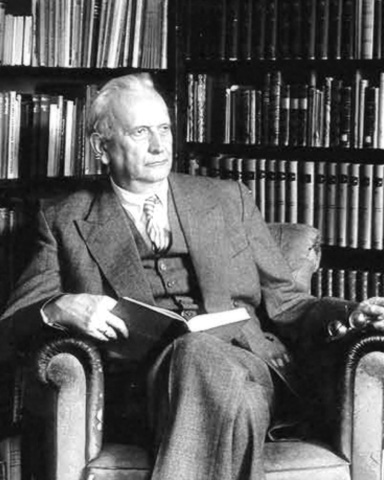
The following text is adopted slightly from Jaspers’ book Way to Wisdom (1930), which is a kind of summary of his main philosophical ideas. Here Jaspers discusses the sources and the meaning of philosophy. An important theme in this book is the philosophical life, and how it addresses life's basic issues.
The desire to lead a philosophical life comes from the darkness in which the individual finds himself, from his sense of abandonment when he looks without love into the void, from his self-forgetfulness when he feels that he is being consumed by the busy-ness of the world, when he suddenly wakes up in terror and asks himself: What am I? What am I failing to do? What should I do?
[…]
But the human being is inclined to self-forgetfulness. He must pull himself out of it in order not to lose himself to the world, to habits, to thoughtless banalities, to the familiar track. Philosophy is the decision to awaken our original source, to find our way back to ourselves, and to help ourselves by inner action.
True, our first duty in life is to perform our practical tasks, to meet the demands of the day. But if we desire to lead a philosophical life, we shall not satisfy ourselves with practical tasks. We shall regard the work which preoccupies us as a road to self-forgetfulness, omission, and guilt. And to lead a philosophical life also means to take seriously our experience of human beings, of happiness and suffering, of success and failure, of the obscure and the confused. It means not to forget but to possess ourselves in our inner experience, not to let ourselves be distracted but to think about problems fully, not to take things for granted but to clarify them.

There are two paths of philosophical life: the path of solitary meditation in all its forms, and the path of communication with human beings, of mutual understanding through acting, speaking, and keeping silence together.
We humans cannot do without our daily moments of profound reflection. In those moments we regain our self-awareness. Otherwise, the presence of our original source would be completely lost in the inevitable distractions of daily life.
[…]
Philosophical thought begins at the limits of rational knowledge. Rationality cannot help us in the essential things: It cannot help us to determine aims and ultimate goals, to know the highest good, to know God and human freedom. This inadequacy of the rational gives birth to a kind of thinking which works with the tools of the understanding, but is more than understanding. Philosophy presses to the limits of rational knowledge, and there it takes fire. The person who believes that he understands everything is no longer engaged in philosophical thought.
[…]
Philosophical ideas cannot be applied. They are a reality in themselves. We may say: In the fulfillment of these thoughts the man himself lives. Or: Life is permeated with thought. That is why the philosopher and the human being cannot be separated from each other. And that is why we cannot explore philosophical ideas in themselves, but we must also be aware of the philosophical humanity which conceived them.
|
|
December Week 2 quotation
SOCRATES
|
|
The unexamined life is not worth living
 Socrates (470-399 BC) was a major ancient Greek philosopher from Athens, known to us primarily through the writings of his students Plato and Xenophon, as well as the plays of Aristophanes. It appears that Socrates was in the habit of engaging people he encountered in philosophical discussions. Through his method of questioning (the so-called Socratic method), he often showed them that they did not know what they thought they knew. His influence on the history of Western philosophy has been profound. Socrates (470-399 BC) was a major ancient Greek philosopher from Athens, known to us primarily through the writings of his students Plato and Xenophon, as well as the plays of Aristophanes. It appears that Socrates was in the habit of engaging people he encountered in philosophical discussions. Through his method of questioning (the so-called Socratic method), he often showed them that they did not know what they thought they knew. His influence on the history of Western philosophy has been profound.
The following passages are adopted from Plato’s Apology. Here Plato quotes Socrates’ speech in front of the Athenian court that sentenced him to death for corrupting the minds of the youth, and for disrespecting the gods. It is unknown to what extent the words which Plato puts in Socrates’ mouth are historically true.
As long as I have life and strength, I will never stop philosophizing, and I will urge anybody I meet and explain to him in my usual way: “O my friend, aren’t you ashamed that you care so much about accumulating as much money as possible and honor and reputation, and that you care so little about wisdom and truth and the improvement of the soul, which you never consider at all?” And if the person responds: “Yes, but I do care!” then I do not leave him, but interrogate and examine and cross-examine him. And if I find that he has no virtue, but only says that he has, then I reproach him that he under-values what is greater, and over-values what is less. And this I will say to anyone I meet, young and old, citizen and foreigner
[…]
Because I go around and do nothing except persuade you all, both old and young, not to care for bodies and money, but first of all to care about the greatest improvement of the soul. I tell you that virtue doesn’t come from money, but from virtue comes money, as well as all other things that are good for human beings, public as well as private.
[…]
If you kill me, you will not easily find another one like me, who am a sort of horse-fly (so to speak), which God gave to the state of Athens. And the state is like a great and noble horse who is slow in his movements because of his large size, and he needs to be stimulated into life. I am that horse-fly. And all day long, and in all places, I always grab you, arousing and persuading and reproaching you.
[…]
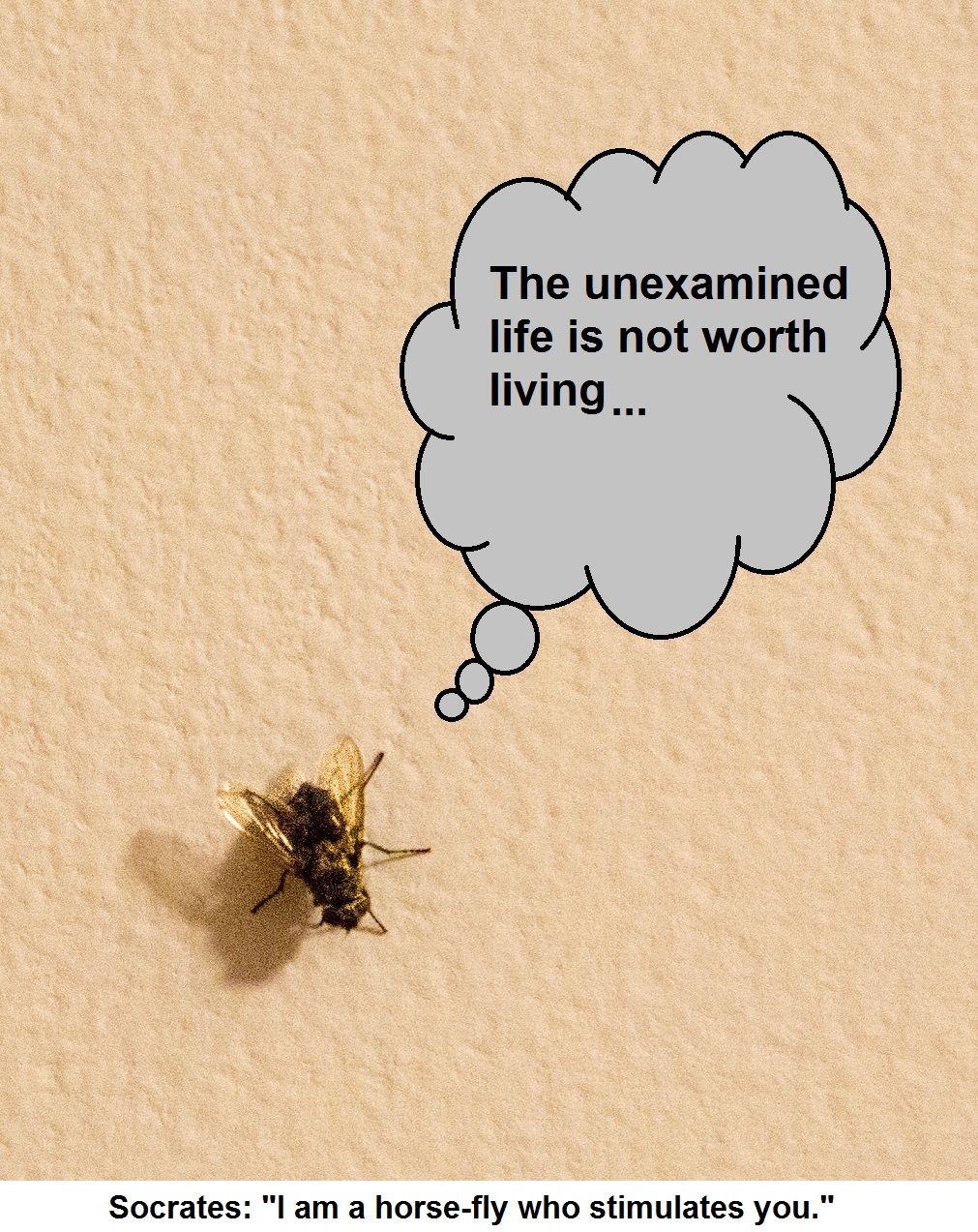
The truth is that I have never been anyone’s regular teacher. But if anybody, whether younger or older, wanted to hear me speak and follow my mission, I was never angry with him. I do not converse only with those who pay me, and do not avoid conversing with those who don’t pay. Rather, anyone, whether rich or poor, may ask me and answer me and listen to my words. And whether he becomes a bad man or a good one, for this I am not responsible, since I have never promised anything, or taught any of them.
[…]
If I say that the greatest good of humans is to converse daily about virtue, and about other topics which you hear me examining both myself and others, and that the unexamined life is not worth living—this you are less likely to believe. And yet, what I say is true, although it is not easy to persuade you.
|
|
|
.. ........ |
|
December Week 3 quotation
NOVALIS
|
|
Philosophizing to elevate the self
 Novalis (1772-1801) was a German Romantic philosopher and poet. His real name was Georg Philipp Friedrich von Hardenberg. He studied law, and then worked in the fields of geology and mineralogy. He was also very interested in other scientific fields such as biology and chemistry, but especially in philosophy. His philosophy was greatly influenced by Johann Gottlieb Fichte, and is often written as collections of fragments. Its mission is to educate humanity towards a higher state of being that integrates all knowledge and nature. Novalis died before the age of 29 from tuberculosis. Novalis (1772-1801) was a German Romantic philosopher and poet. His real name was Georg Philipp Friedrich von Hardenberg. He studied law, and then worked in the fields of geology and mineralogy. He was also very interested in other scientific fields such as biology and chemistry, but especially in philosophy. His philosophy was greatly influenced by Johann Gottlieb Fichte, and is often written as collections of fragments. Its mission is to educate humanity towards a higher state of being that integrates all knowledge and nature. Novalis died before the age of 29 from tuberculosis.
The following passages are adapted from Novalis’ collection of short fragments “Logological Fragment I,” published in English in his Philosophical Writings. In this collection he makes observations on philosophy, poetry and art, religion, language, nature and human nature, and reflects on how they are connected to each other.
Novalis distinguishes between two aspects of the human being: First, the real self – the way I am as a matter of fact. Second, the ideal or higher self, which I can sometimes feel acting in me. Philosophy is a conversation with the higher self, in an effort to elevate ourselves towards it.
7. When we begin to reflect on philosophy, then philosophy seems to us to be everything, like God, and like love. It is a mystical, very powerful, and penetrating idea, which drives us without stop inward, in all directions. The decision to do philosophy – to seek philosophy - is the act of self-liberation, the push toward ourselves.
20. […] A person feels as if he is in some kind of conversation, and as if some kind of unknown spiritual being makes him think the most evident thoughts. This being must be a higher being, because it communicates with him in a way that is not possible for a material being. The higher self has the same relation to the human being as the human being to nature, or the wise person to a child. The human being yearns to be the equal of this higher being […] This fact cannot be demonstrated. Everyone must experience it for himself. It is a higher fact which can be experienced only by the higher person. But people should strive to create it in themselves.
This kind of knowledge, which arises in this way, is the higher theory of knowledge. [...] The practical part of this theory consists of educating the self toward being able to communicate with the higher being. The theoretical part consists of explaining the characteristics of true communication.
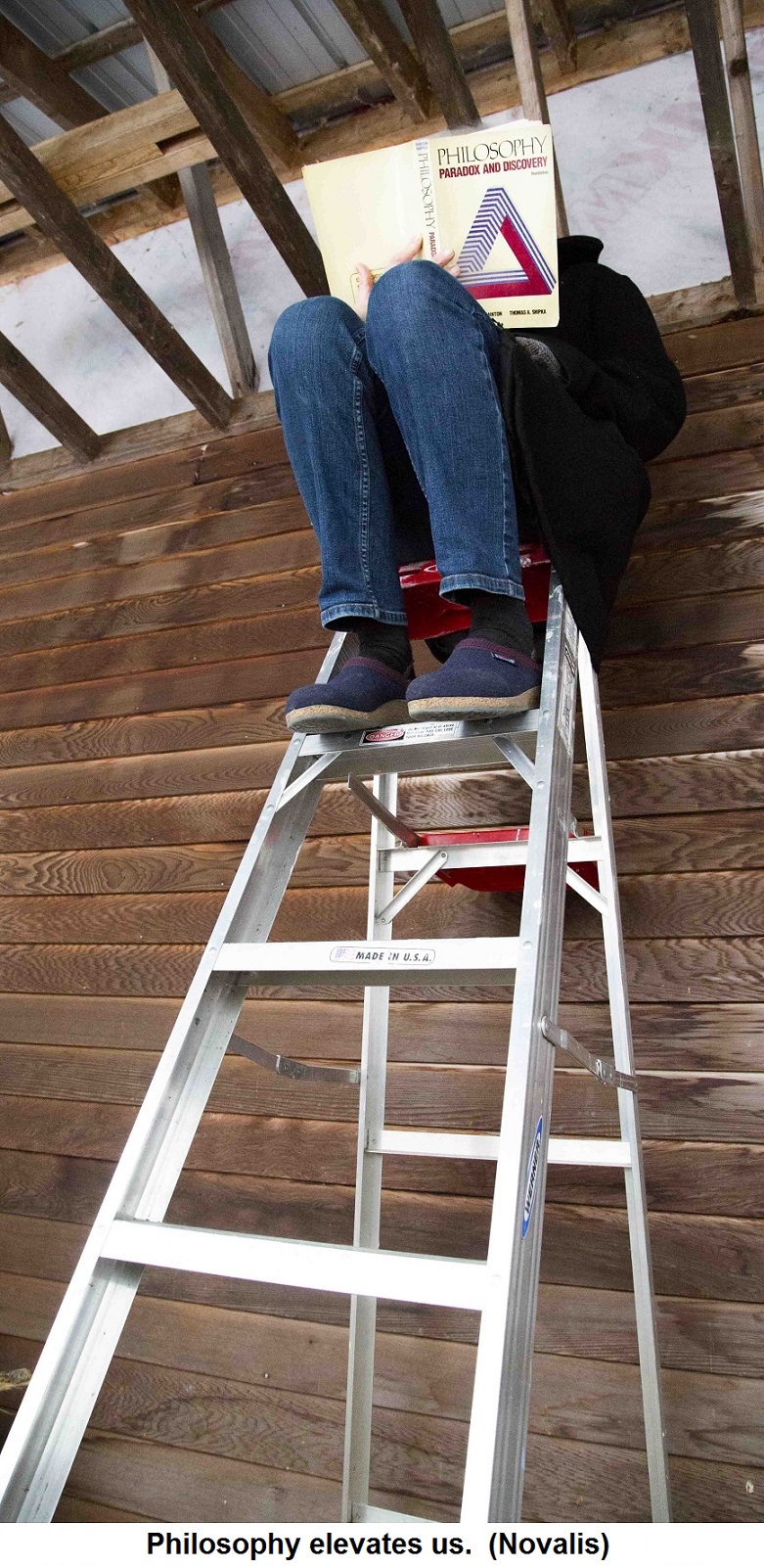
21. Doing philosophy is a conversation with yourself, a conversation of the kind that is mentioned above - an actual revelation of the self, the arousal of the real self through the ideal self (higher self). Doing philosophy is the foundation of all other revelations. The decision to do philosophy is a challenge to the real self to reflect, to awaken, and to be spirit. Without philosophy there is no true morality, and without morality there is no philosophy.
24. The poem of understanding is philosophy. It is the greatest motivation that the understanding gives itself about itself – a union of the understanding and the imagination. Without philosophy, a person remains divided in his most essential powers. He is two people – one who has understanding, and one who is a poet. Without philosophy, a poet is incomplete. Without philosophy, a thinker – or a judge – is incomplete.
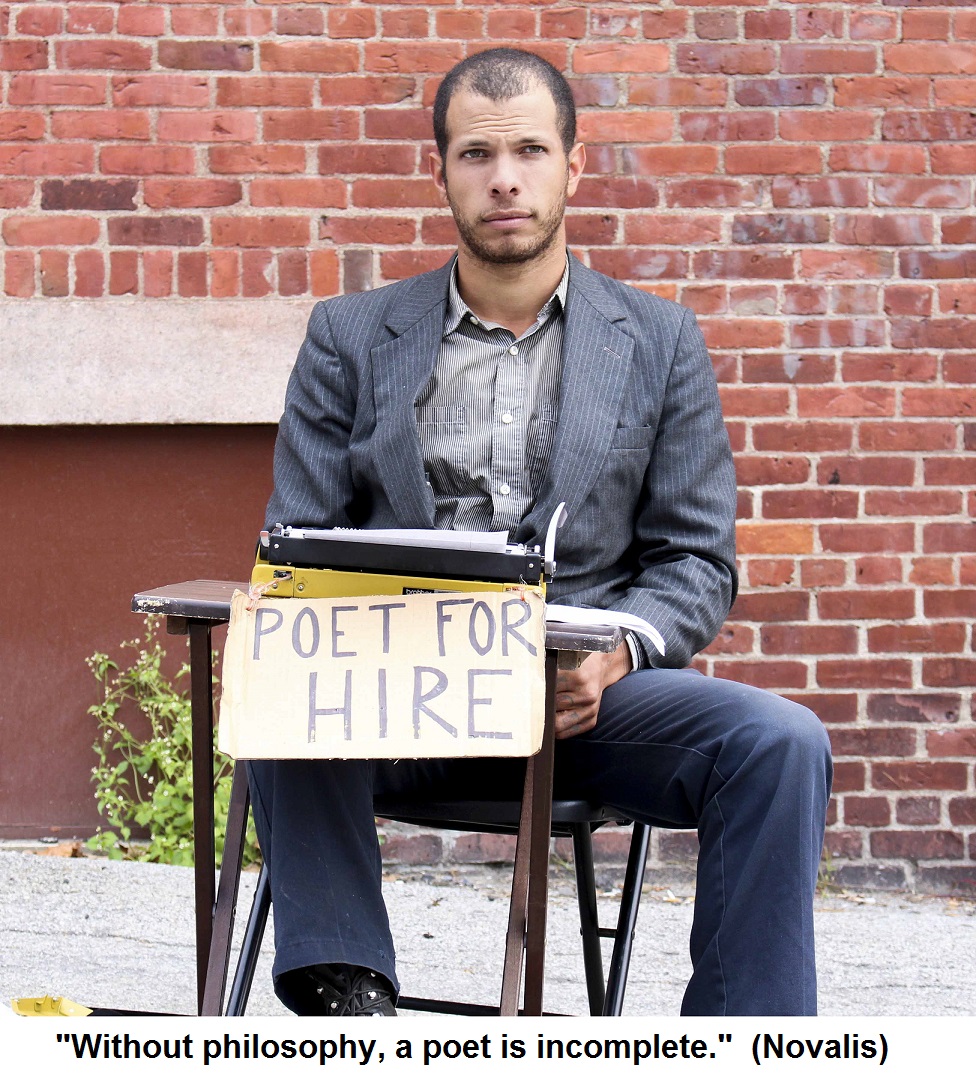
|
|
December Week 4 quotation
MARIA ZAMBRANO
|
|
The violence of philosophy
Maria Zambrano (1904-1991) was a Spanish philosopher whose philosophy was highly poetic. She studied with the philosopher Ortega y Gasset, then taught philosophy at the University of Madrid. She was involved in the Spanish Civil War, and when Franco rose to power she went to exile in Mexico and other locations in America. After World War II she moved to Paris and other European cities, and in 1984 returned to live in Spain, where she received awards and recognitions.
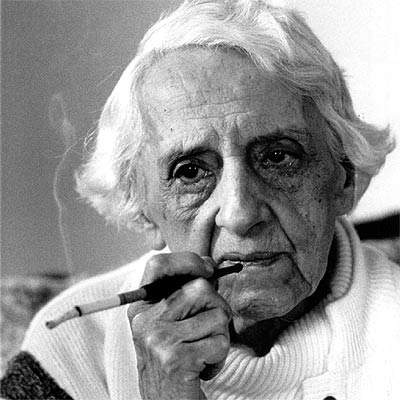 Maria Zambrano’s philosophy is poetic not only in style but also in content: She believes that poetics is necessary in order to understand the deeper aspects of human existence. Her work can therefore described as poetic philosophy. Maria Zambrano’s philosophy is poetic not only in style but also in content: She believes that poetics is necessary in order to understand the deeper aspects of human existence. Her work can therefore described as poetic philosophy.
The following passages are adapted from Zambrano’s essay “Thought and Poetry,” which appeared in her book Philosophy and Poetry (published in 1939). In this essay, she investigates the commonalities and differences between poetry and philosophical thought. Agreeing with Aristotle that philosophy starts with wonder, she argues that philosophy and poetry have a common root: they both start with “admiración” (in Spanish: admiration, but also amazement or wonder) – towards the things which appear around us.
However, here their ways split: Poetry remains in admiration, while philosophy interrupts the admiration, pulls itself back, and searches for something hidden, invisible: the unifying idea that is hidden behind the appearances. Zambrano considers this interruption violence. She compares it to the force that pulls the philosopher away from the shadows in Plato’s cave.
What is the root, within us, of thought and poetry?
[…]
If thought was born only from admiration (admiración), as certain venerable texts tell us (Aristotle), then it would be hard to explain how thought takes the shape of systematic philosophy.
[…]
However, in another venerable text we find another root from which philosophy is born: the passage in Book 7 of The Republic, in which Plato presents his Myth of the Cave. There, the force that gives birth to philosophy is violence. And indeed, admiration (admiración) and violence together, like contrary forces that do not destroy each other, can explain this first philosophical moment, the moment in which we find a duality and, perhaps, the original conflict of philosophy: First an ecstatic astonishment at things, and immediately afterwards a violation of this amazement in order to liberate oneself from those things. One might say that thought regards its object as no more than a pretext, and that thought immediately negates its primitive astonishment – and perhaps betrays it, when it quickly jumps to other areas, and thus disrupts its nascent ecstasy. Philosophy is an ecstasy that fails because of a disruption. What is the force that disrupts it? Why that violence, the hurry, the impulse to release itself?
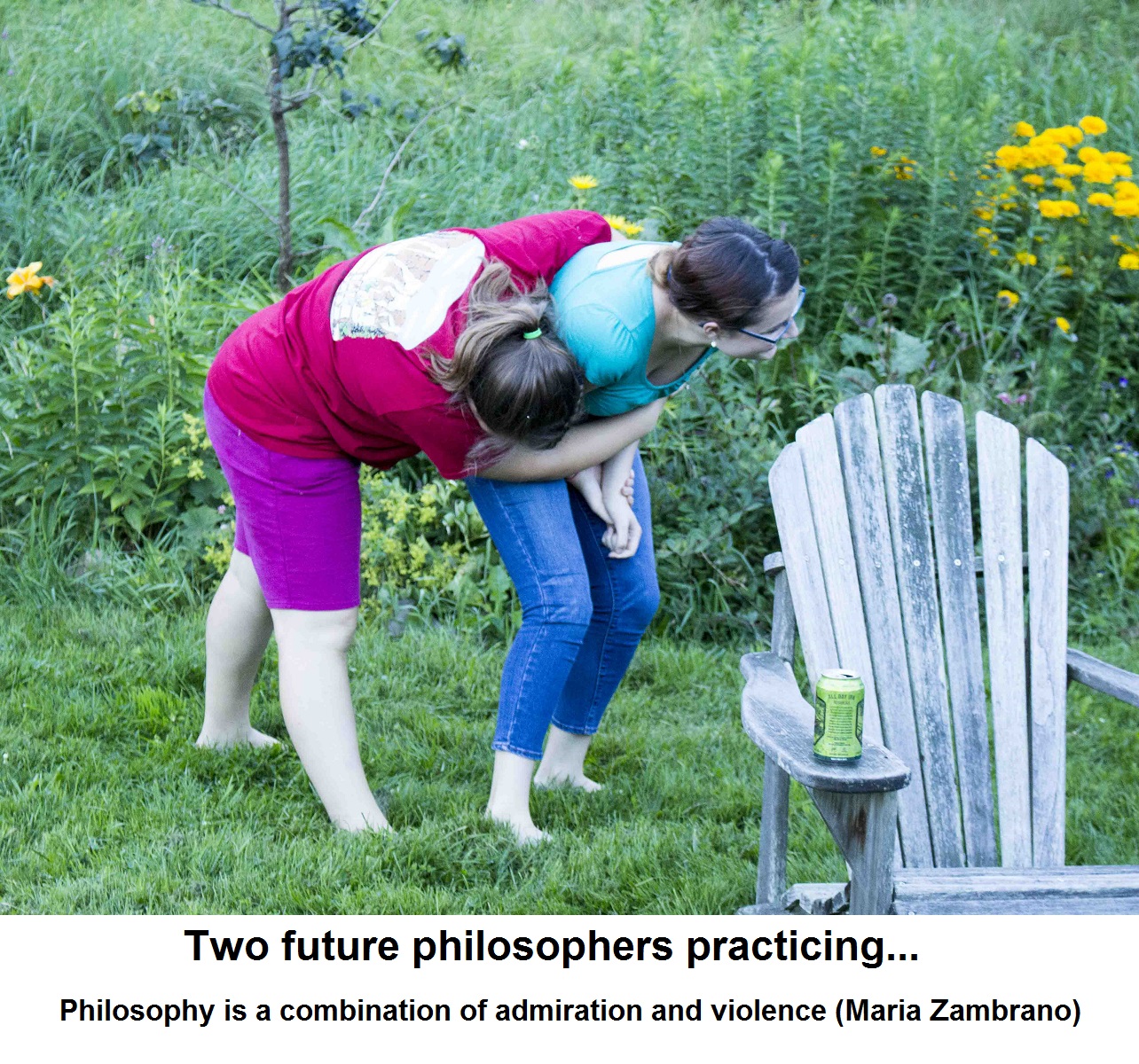
And now we can see more clearly the condition of philosophy: admiration (admiración), astonishment in front of the immediate, in order to violently pull itself away from it and jump to another thing – to a thing which one must search for and pursue, which does not give itself to us, which does not offer its presence. And here begins the difficult road, the methodical effort to capture something which we do not have, and which we need to have…
[…]
No, not everyone followed the hard road of truth, and they remained fixed to the present and the immediate, to that which offers its presence and gives its shape, to that which trembles in its nearness. They did not experience any violence, or perhaps not this kind of violence. They did not jump to seek the ideal, and were not disposed to struggle to climb the hill that leads from the simple encounter with the immediate towards the permanent, self-identical Idea. Faithful to things, faithful to their primitive ecstatic admiration (admiración), they never wanted to disrupt it. They could not, because that thing was already within them, and was imprinted in their interior. The poet had already within himself what the philosopher pursued – in a certain sense, yes, in quite a different manner.
[…]
What is this sweet and restless possessor that calms and that is not enough? We know that it was called poetry – and who knows what other forgotten names? And from then on, the world would divide, split into two roads. The road of philosophy, where the philosopher was driven by violent love for what he was looking for, abandoned the surface of the world, the generous immediacy of life […] The primary astonishment has been converted into persistent interrogation. The inquisition of the intellect has begun its own martyrdom, and also of life.
The other road is the road of the poet. The poet did not renounce and did not search, because he had. He already had what appeared before him, before his eyes, before his ears and touch. He had what he saw and heard, what he touched, but also what appeared in his dreams…
[…]
The road of philosophy is clearer and more secure. Philosophy has triumphed in the area of understanding, because it conquered something solid, something so true, compact and independent that it is an absolute, something that does not rest on anything and that everything rests on it. The roughness of the road and the ascetic renunciation have been largely compensated.
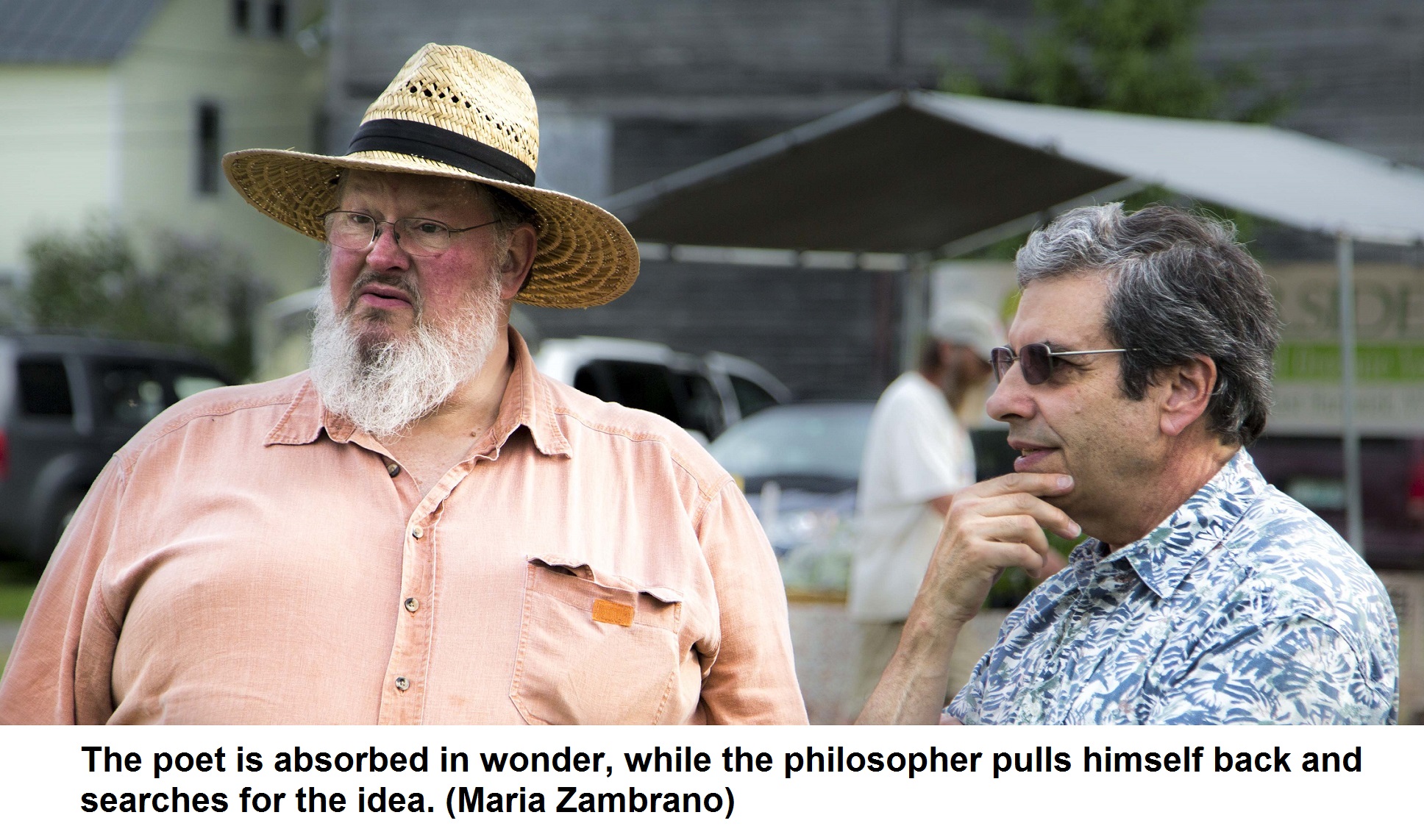
|
|
|